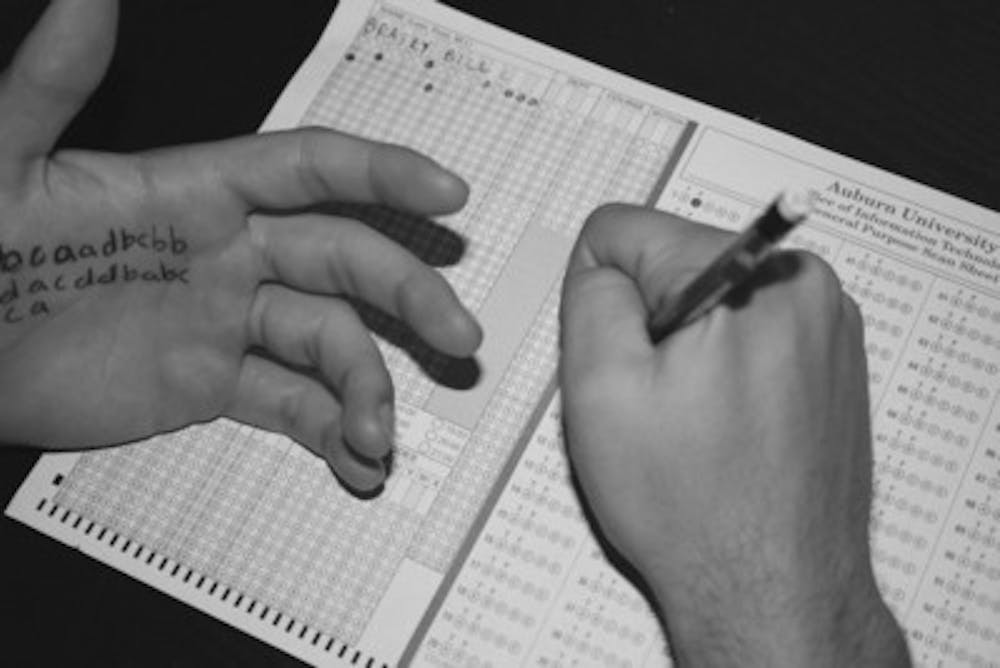Writing answers on a small folded piece of paper, texting them across the room, stealing other students' work and forging excuse notes will all land students a trip to the Office of the Provost Academic Honesty Committee.
A recent study by collegehumor.com revealed 60 percent of college students admit to have cheated at least once in their college career.
J. Emmett Winn, interim associate provost for Auburn University, says he has not seen an increase in cheating among Auburn students.
"We certainly get our fair share of cases, but it does not seem unusually high," Winn said.
Winn said most of the cases he sees are plagiarism cases, but he does see a good number of students who cheat on tests or copy other students' work.
Mary Katherine Brock, interim director of MBA admissions, said she has noticed plagiarism becoming a problem.
"From what I've understood from each case I've come across, a majority of these students do not even know that they are plagiarizing," Brock said.
Brock said in the future, she plans to solve this problem by ensuring students know what all is considered plagiarism.
"I plan to invite resource librarians who specialize in plagiarism to give a 30 minute guest lecture on the topic," Brock said.
Brock takes procedures to prevent cheating before every exam.
"On my exams I try to minimize opportunities for cheating by creating multiple exam versions, having several proctors and making students abide by certain class rules during exams," Brock said.
Brock said some of her exam day rules include not allowing students to wear hats, having all students zip their backpacks and requiring that all students show identification when turning in exams.
Robert Lishak, science professor, takes some of the same precautions Brock does to prevent academic dishonesty in his classes. Lishak makes four different test versions, all with the same questions and answer choices, but scrambled on each exam version.
Like Brock, Lishak also has proctors on test day and requires students to show some form of identification when turning in their exam.
Lishak explained there are three kinds of cheating: looking on another student's paper or a student making his or her exam available for others to look onto, bringing in cheat sheets or a student writing on his or her hand, and forging excuse notes.
One of Lishak's pet peeves is students who forge medical excuses.
"I'm hell-bent on being fair," Lishak said. "Everyone could use extra study time, so it's not fair for students to buy time with fake excuse notes."
Lishak tells his students he will send them to the Academic Honesty Committee if he discovers a forged note and will check excuses, so there will be no surprises.
Lishak feels some other professors are too trusting and should always make multiple test forms.
"Multiple test forms are important, but the most important thing to do is check excuse notes," Lishak said.
Lishak said he never handles academic dishonesty himself.
"The reason the University wants professors to report academic dishonesty is to catch the chronic cheaters," Lishak said. "Everyone needs to take advantage of this and not try to handle the issue themselves, or chronic cheaters will be treated like it is their first offense every time."
Do you like this story? The Plainsman doesn't accept money from tuition or student fees, and we don't charge a subscription fee. But you can donate to support The Plainsman.




